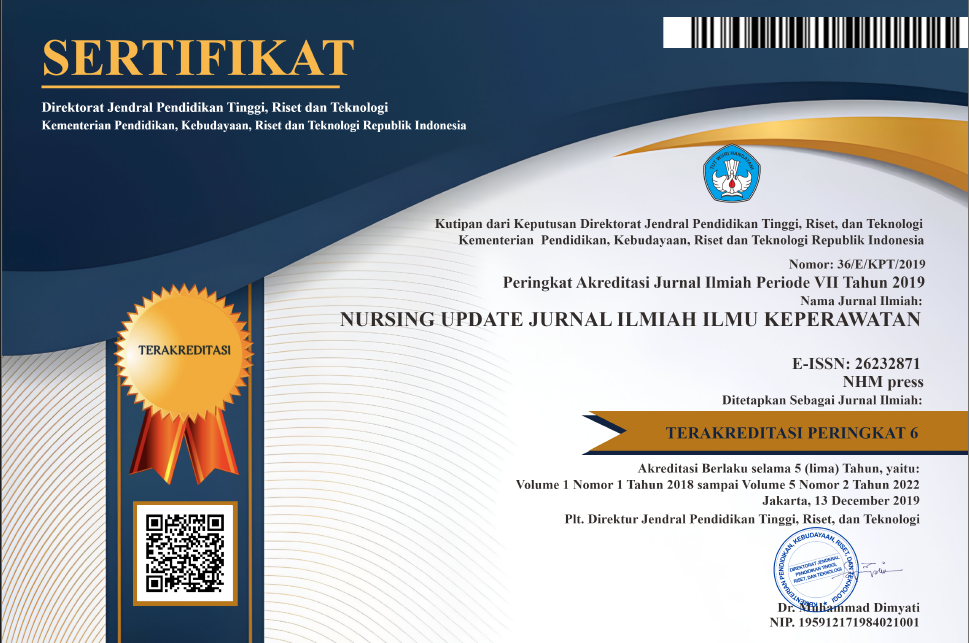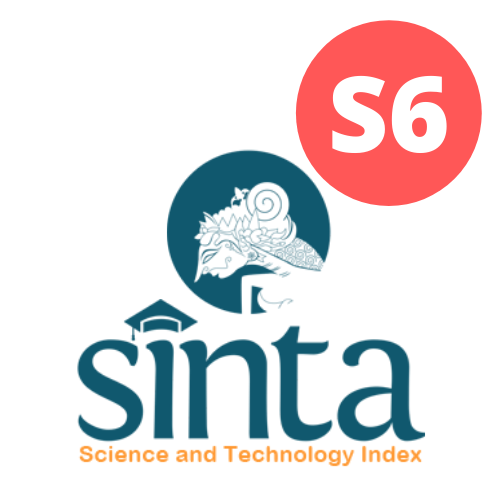PENGARUH POSISI NESTING DAN TERAPI MUROTTAL AL-QUR`AN TERHADAP TANDA VITAL BAYI BBLR DENGAN ASFIKSIA DI NICU: CASE STUDY
Abstract
Background: Low Birth Weight (LBW) infants have a much higher risk of experiencing perinatal asphyxia. Treatment interventions that can be applied to infants with LBW and asphyxia are nesting positions and Al-Qur'an Murottal Therapy. Nesting positions and Al-Qur'an Murottal Therapy in LBW infants with asphyxia can have a positive impact on the stability of vital signs, such as heart rate, respiratory rate, oxygen saturation, and body temperature. Research method: This study used a case report method with the intervention of nesting positions and Al-Qur'an Murottal Therapy in LBW infants with asphyxia in the NICU. The intervention was carried out for five consecutive days with a duration of 30 minutes per day. Results: After the intervention for 5 consecutive days, there was a decrease in the average heart rate from 150.6 x/minute to 145.8 x/minute, a decrease in the average respiration from 59.2 x/minute to 56.2 x/minute, an increase in the average oxygen saturation from 94% to 96.6%, an increase in the average temperature from 36.2°C to 36.6°C. Conclusion: The provision of nesting positions and Al-Qur'an Murottal Therapy have an effect on vital signs including heart rate, respiration, oxygen saturation, and body temperature in Low Birth Weight (LBW) babies with asphyxia










